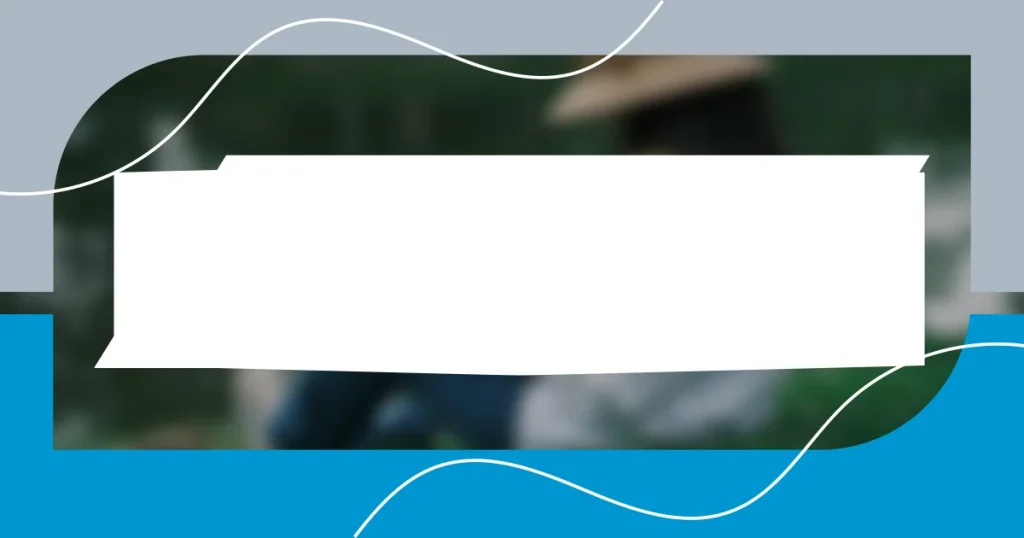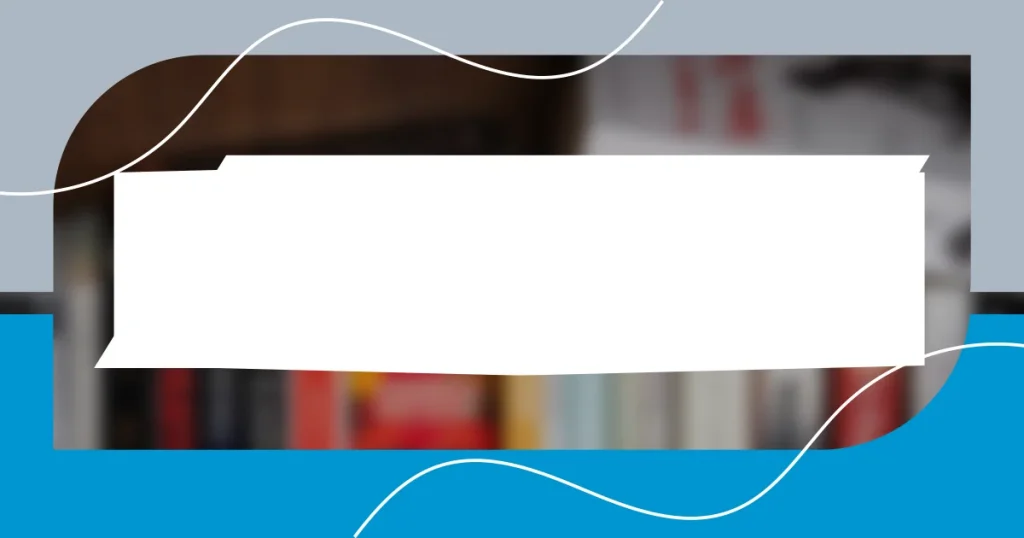Key takeaways:
- Writing failures serve as opportunities for growth, prompting reflection, refinement, and a deeper understanding of one’s craft.
- Embracing critique and feedback can enhance writing, despite the initial discomfort, shaping characters and narratives more effectively.
- Applying lessons learned from past mistakes is crucial for future writing projects, fostering self-awareness and resilience in the writing process.

Understanding writing failures
Understanding writing failures isn’t just about recognizing what went wrong; it’s an opportunity for growth. I remember a time when I poured my heart into a piece, only to receive harsh critique. At that moment, I asked myself, “Why does this hurt so much?” It felt like a slap in the face, but that discomfort prompted me to question my approach and learn from it.
I’ve come to realize that every writer faces setbacks. A couple of years ago, I submitted an article that I thought was perfect, only to have it rejected. Initially, I felt defeated, but eventually, I began to see rejection as a stepping stone rather than a stumbling block. Has a failed attempt ever pushed you to refine your work? For me, it ignited a passion to improve every aspect of my writing.
When we delve into our writing failures, we often unearth valuable lessons. One of my most vivid memories involves revising a manuscript that I thought was polished. Each edit felt painful, but I learned that true growth often comes from grappling with imperfections. Isn’t it fascinating how something that stings can lead to clarity? Embracing these failures has reshaped my writing journey in ways I never anticipated.

Identifying common writing mistakes
Identifying common writing mistakes is an essential part of growth as a writer. I vividly remember the frustration of overusing adverbs in my early pieces; they crept in like uninvited guests at a party. With experience, I learned that clarity often hides behind simplicity. Here are some common mistakes I’ve encountered on my writing journey:
- Overcomplicating sentences makes ideas lose their impact.
- Neglecting proofreading can lead to embarrassing typos.
- Failing to respond to feedback limits personal growth.
- Ignoring the target audience can disconnect the message.
- Relying too heavily on clichés makes writing feel stale.
As I reflect on my past work, one consistent struggle has been transitioning between ideas. There were times I’d jump from one thought to another without a moment’s pause, leaving readers baffled or lost. I realized that creating smooth transitions isn’t just about grammar; it’s about guiding your reader through your thought process with intention. It’s incredible to witness how maintaining a conversational flow can make complex ideas more palatable.

Learning from critique and feedback
Learning from critique and feedback is vital for any writer. I recall a particularly detailed critique I received on a short story where the reviewer pointed out that my characters felt flat. Initially, I felt defensive, but the more I reflected on their words, the more I recognized the truth in them. That moment taught me that accepting feedback isn’t just about fixing mistakes; it’s about embracing opportunities to deepen my characters and enrich my narratives.
Another experience that stands out is when I participated in a writing workshop. The feedback I received from my peers felt overwhelming, yet it opened my eyes to different perspectives. I learned that constructive criticism can build a bridge to better writing. Did it sting when they highlighted the flaws in my piece? Absolutely. But with each piece of feedback came a lesson—be it about pacing, character development, or even emotional resonance. Over time, I’ve come to cherish this input as a necessary part of my creative process.
What I’ve realized is that critique shapes my journey as a writer. I remember sitting down post-workshop and reflecting on the heaviest criticism. Instead of shying away, I embraced their suggestions. In that vulnerability, I discovered strength and a clearer vision for my writing. Doesn’t it feel empowering to turn pain into purpose? Once I shifted my focus from being defensive to being receptive, my writing began to flourish in unexpected ways.
| Positive Aspects of Feedback | Challenges of Receiving Feedback |
|---|---|
| Highlights areas for improvement | Can feel personal and hurtful |
| Offers new perspectives | May be overwhelming at times |
| Encourages growth | Requires humility to accept |
| Builds a supportive community | Risk of misinterpretation |

Embracing revision and editing
Embracing revision and editing is where I truly witnessed my writing evolve. I remember sitting with my first draft of a novel, utterly convinced it was brilliant. But as I reread it days later, I felt a mix of embarrassment and excitement. How could I not see the choppy dialogue and awkward phrases before? This moment was pivotal; it taught me that revising is not merely a chore but an invitation to refine my voice and strengthen my stories.
I often think of revision as a conversation with myself. With every edit, I uncover layers of meaning I hadn’t initially grasped. After working through my drafts, I was surprised to find entire scenes that felt lifeless transformed into vibrant moments that pulsed with energy. Isn’t it fascinating how the act of editing can breathe new life into our words? I’ve learned to approach each round of revision with a sense of curiosity instead of trepidation, eager to discover what hidden gems await.
Furthermore, my experiences in editing have shown me the importance of patience. After completing a piece, I learned the hard way that stepping away for a bit allows my mind to refresh. I distinctly recall returning to a short story weeks later and feeling as if I had borrowed someone else’s work. Seeing it with fresh eyes empowered me to make choices I wouldn’t have considered before. Have you experienced that exhilarating moment when a once dull paragraph suddenly sparkles with life? That’s the power of embracing revision—it turns what once felt like failure into a canvas for endless possibilities.

Cultivating persistence in writing
Cultivating persistence in writing is essential, especially in the face of rejection. I once submitted a story to a prestigious magazine, brimming with confidence. I’ll never forget the sting of receiving a rejection letter that was filled with “not quite fitting our theme.” Instead of giving up, I used that experience to fuel my determination. I analyzed the feedback and refined my story until it found a home elsewhere. Isn’t it amazing how a simple “no” can actually push us to improve?
I often share with fellow writers that finding my voice has been a marathon, not a sprint. There were days filled with frustration, where I doubted my abilities and felt like throwing in the towel. I remember sitting with a blank page, feeling like a failure, but reminding myself that every great artist faces setbacks. It was during those moments of doubt that persistence became my ally. By committing to writing daily, even if it was just a few sentences, I cultivated a habit that slowly transformed my mindset.
Another lesson I learned about persistence was during a year of writer’s block. I was stuck on a project that held so much promise but felt like a weight dragging me down. Instead of forcing words onto the page, I took a break and allowed myself to explore new interests, like poetry and even painting. To my surprise, those creative diversions reignited my passion for storytelling. In a way, taking that step back became a powerful act of persistence. Sometimes, the best way to move forward is to shift your perspective and trust that your creativity will return. Have you ever found yourself growing in unexpected ways when you allowed yourself to pause and breathe?

Applying lessons to future projects
Applying lessons learned from past writing failures to future projects can be a game changer. I remember a time when I submitted a short story that I thought was polished, only to realize later that I missed crucial plot points. This taught me the significance of outlining my ideas beforehand. Now, I spend extra time structuring my narratives before diving into the writing process. Have you ever missed a key element in your project that seemed obvious in hindsight? I find that a solid foundation can save a lot of time during the revision phase.
There’s also something liberating about acknowledging past mistakes. For instance, during a poetry workshop, I wrote a piece that felt so raw and unrefined. The feedback was tough, yet it prompted me to rethink my approach to emotional expression. I’ve since incorporated more vulnerability into my writing, which has enriched my stories. Wouldn’t you agree that sometimes the most uncomfortable feedback leads to the most significant growth?
As I move forward with each new project, I keep a “lessons learned” journal. After each completed work, I jot down what went well and what didn’t. This practice has helped me cultivate a sense of self-awareness that I didn’t have before. Recently, I reread one of my earlier entries, reflecting on what I once considered failures. Instead, I see them now as stepping stones to improvement. How do you track your own progress? It’s fascinating how a simple practice can transform our approach to writing, making us more resilient and methodical in our craft.
















